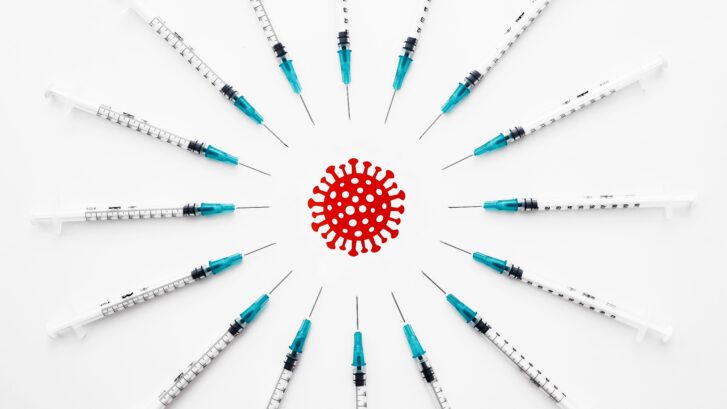What You Need to Know About COVID-19 Boosters
Our primary care concierge doctors at MD 2.0 in Jupiter have been receiving many frantic calls from our patients about the omicron variant of the coronavirus. So let us say right up front that there’s no need to panic, and likely no need to be especially concerned at this point.
The fact is, it will be another week or two at least before researchers can get begin to get answers on what this new variant means in the fight against the pandemic. Early indications show the vaccinations will offer at least some measure of protection against it, and possibly a good deal.
Otherwise, it’s just too soon to tell whether the recently discovered omicron variant will be more transmissible or cause more severe disease, whether it will be able to evade our current vaccines and treatments, or whether it will will simply peter out, as have other recent variants such as mu and lambda.
COVID-19 Boosters for all
Delta remains the dominant variant in the U.S. It is causing another increase in hospitalizations as indoor holiday celebrations and travel cause more people to spend time in close quarters. Also adding to the spread are the 40.6 percent of Americans who still have not been fully vaccinated against the coronavirus.
Vaccines, masks, and social distancing are the best tools available to prevent spread of COVID-19, according to experts.
And last month both the U.S. FDA and CDC recommended everyone ages 18 and older who has been fully vaccinated receive COVID-19 boosters. That means a third shot for those who received one of the mRNA vaccines (Pfizer or Moderna) or a second shot for those who got the Johnson & Johnson vaccine.
“Everyone ages 18 and older should get a booster shot either when they are six months after their initial Pfizer or Moderna series or two months after their initial J&J vaccine,” CDC director Rochelle Walensky told reporters.
Pfizer has also asked the FDA to authorize COVID-19 boosters for those who are 16 and 17. Regulators have hesitated in approving the mRNA vaccines for this group. They have been linked to myocarditis or swelling of the heart muscle, a rare side effect seen primarily in older male adolescents and young men.
But recent studies have shown that this side effect is rare, and usually mild.
More protection
The CDC approved mixing and matching the various types of vaccines. This means that an eligible person who received a single-shot Johnson & Johnson vaccine can now get a booster of another Johnson & Johnson vaccine or a single dose of either Moderna or Pfizer. Those who received the Pfizer or Moderna vaccines could stick with their same type or “overlay” their protection from a different manufacturer.
“We will not articulate a preference,” Walensky said.
In fact, at least one study from the National Institutes of Health (NIH) found that mixing vaccine types appeared to produce a stronger immune response.
It’s important to remember, however, that vaccines do not prevent infection from the coronavirus. They are not like a mask or social distancing that will help keep the virus from entering your body. They stimulate the body’s immune response. If you do become infected, you can more effectively fight it off and help keep you from becoming seriously ill.
What about omicron?
As we said, it’s still too early to know whether the current vaccines will protect against the omicron variant, but they have so far worked well against the other COVID-19 variants.
“We know from experience that even with variants that are not specifically directed at by the vaccine, such as the delta variant, if you get the level of antibody high enough, the protection spills over to those other variants,” Dr. Anthony Fauci, director of the National Institute of Allergy and Infectious Diseases, told CNN.
Jeanne Marrazzo, an infectious-disease physician at the University of Alabama at Birmingham, agreed.
Anything the U.S. can do to increase protection “before omicron hits can potentially help and certainly won’t hurt,” she told The Washington Post.
“All of the previous variants, which have also had differences in the spike protein [like omicron], have responded to vaccines—and especially boosters,” Dr. Francis Collins, director of the NIH, told CNN.
In addition, experts say they will at least help stop the development of further mutations.
“The virus mutates when people get infected,” Dr. Jorge E. Rodriguez, and internal medicine specialist based in Los Angeles, told CNN. “It doesn’t mutate in the air.
“There is no such thing as a good infection, even if you survived it with minimal symptoms,” he said. “Even though you’ve gotten infected and you did fine, guess what? You may very well have contributed to mutations that will be stronger.”
So if you haven’t yet done so, please get vaccinated. If it’s been six months since your initial mRNA dose, or two months for J&J, register for the COVID-19 boosters.
If you have any questions about the safety or efficacy of the coronavirus vaccines, please don’t hesitate to contact us.

